Celebrating 50 Years of Impact: IFPRI and the Future of African Food Systems
IFPRI’s 50th anniversary offers an opportunity to reflect on the Institute’s enduring contributions to food systems thinking and transformation—globally and across Africa. From early work on food security measurement and agricultural policy reform to today’s cutting-edge research on food systems, governance, trade, resilience, and nutrition, IFPRI has helped shape how food systems are analyzed, understood, and improved.
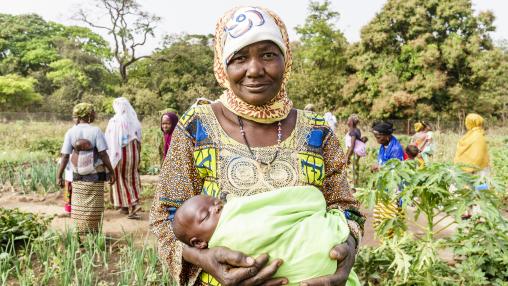
Transforming rural livelihoods: Lessons from the Africa RISING program
Sustainable agricultural development has long been heralded as a vital pathway to alleviating poverty and hunger in Africa, where smallholder farming predominates across diverse landscapes and local conditions changing due to climate impacts and other factors. Sustainable intensification (SI) approaches—tailored to local conditions—offer a range of farming techniques designed to improve growing conditions, yields, and measures of well-being including food security.
Debt Distress and the Right to Food in Africa
More than half of low-income countries are at risk of debt distress or have already defaulted. The debt crisis, while exacerbated by recent crises, has been looming for several years. According to the United Nations, 3.3 billion people now live in countries that spend more on interest repayments than on education or health, and in sub-Saharan Africa, governments are spending 53 percent of revenue on debt servicing.
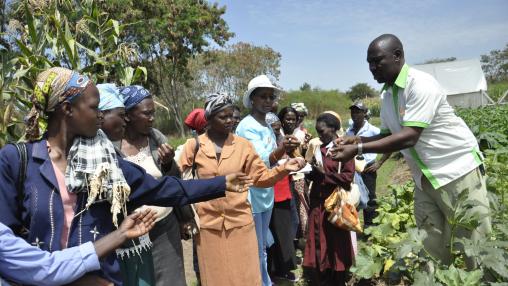
Packaging Climate-Smart Agricultural Practices to Increase Farmer Adoption: Evidence from Nigeria
Extreme weather events and the long-term impacts of climate change pose a major risk for Africa south of the Sahara, threatening agricultural production and economic growth and hindering efforts to reduce poverty and food insecurity. Climate-smart agricultural practices (CSAPs) can help farmers better adapt to and mitigate these risks; however, the adoption of such practices in the region remains low.
Climate-smart digital technologies for agriculture and food security (CSDAT) of the Africa Adaptation Acceleration Program: New frontiers for the food system
Le Programme d'accélération de l'adaptation en Afrique organise un webinaire intitulé : « Technologies numériques intelligentes face au climat pour l'agriculture et la sécurité alimentaire (CSDAT) : Nouvelles frontières pour le système alimentaire » le mardi 12 avril 2022, de 9h à 10h30 (GMT).
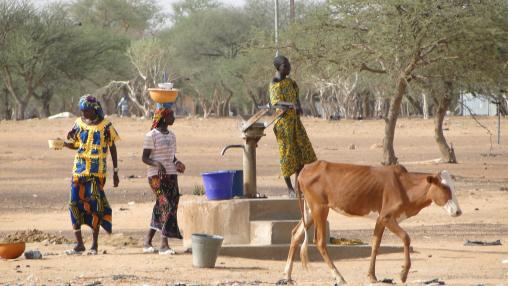
Land, climate, energy, agriculture and development in the Sahel
At an online event on January 19, 2021, researchers from national research institutes and universities in the Sahel region and Germany, namely the Agrhymet Regional Centre of the Permanent Interstate Committee for Drought Control in the Sahel (CILSS) in Niger and the Center for Development Research at the University of Bonn (ZEF) in Germany launched a series of national cases studies*) and a regional synthesis report on rural development, agricultural livelihoods and job creation in the Sahel region.
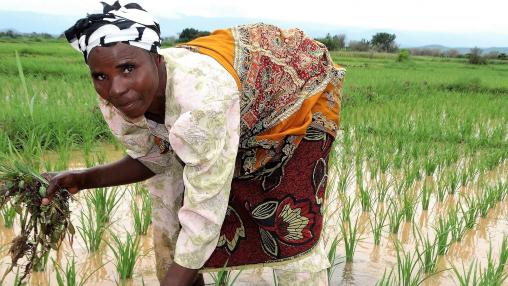
Food security in the face of COVID-19: Evidence from Africa
Food security has been a significant concern for Sub-Saharan Africa (SSA), even before the onslaught of challenges brought about by COVID-19. As the pandemic started spreading to the region, one concern has been that of its possible impacts on food security, as the crisis has the potential to exacerbate an already fragile food security environment.
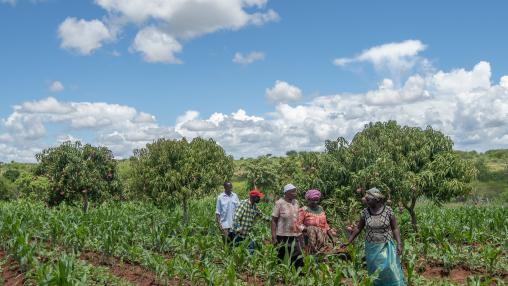
How small businesses are driving growth across African agriculture
A new report from the Alliance for a Green Revolution in Africa (AGRA) finds that millions of small- and medium-sized enterprises (SMEs) source directly from millions more smallholder farmers across Africa South of the Sahara. These SMEs, often led by women, include food processors, wholesalers, and retailers. SMEs provide a range of services, from transport and logistics to the sale of inputs such as fertilizer and seed to farmers. Their activity is driving a “quiet revolution” across African agriculture, connecting smallholder farmers to commercial markets at an unprecedented rate.
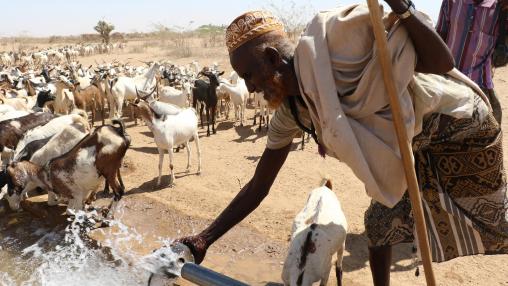
Increasing resilience to climate shocks
This post originally appeared on IFPRI.org .
By Claudia Ringler and Turhan Saleh
Extreme weather events and other climate change-linked disasters have devastated communities globally: Be it cyclones along the coast of Southern Africa, flooding in parts of Canada, drought-induced wildfires in California, or the recent El Niño (ENSO) induced drought in Eastern and Southern Africa that affected 60 million people.
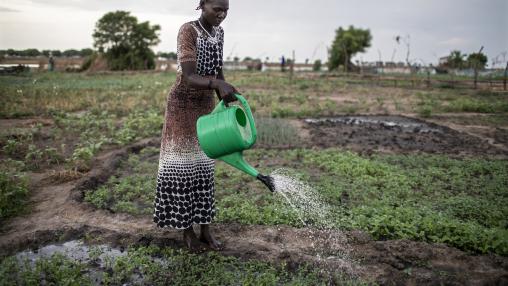
Investing in rainfall research in the Sahel
This post originally appeared on the IFPRI-WCAO blog.
The prolonged heatwave of summer 2018 has devastated crops across Europe, leaving some countries facing their worst harvests since the end of World War II.
The hot temperatures and lack of rainfall, especially in central and Eastern Europe, has forced major exporting countries to import food for the first time in decades. Some countries are facing rising food prices as a result, while others, such as the UK, experience fruit and vegetable shortages in supermarkets.